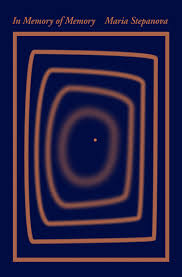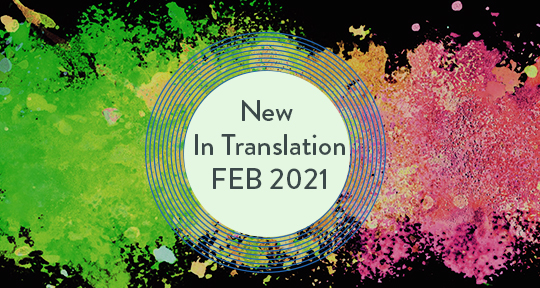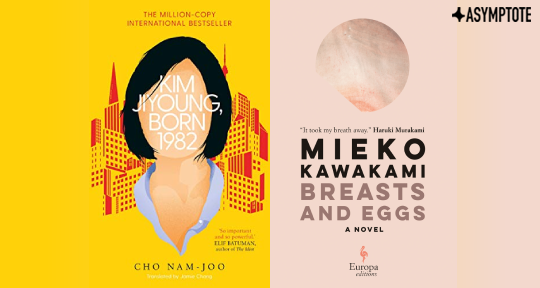Amongst the great gifts that translation brings us is an awareness to the alternation and variegations of perspective, informed by ever-shifting factors of fact, selfhood, relationships, and hearsay alike. In this month’s roundup of excellence in world literature, our selection of texts brings expansive voices to light in exquisite explorations in what it means to remember, comprehend, and believe: a luminous text on family history from Maria Stepanova, the reimaginings of folktales by Mia Couto, and a deft fiction on self-deceptions by Sònia Hernández.

In Memory of Memory by Maria Stepanova, translated from the Russian by Sasha Dugdale, New Directions, 2021
Review by Darren Huang, Editor-at-Large for Taiwan
In W.G. Sebald’s final novel Austerlitz, the protagonist Jacques Austerlitz—an art historian who arrived in Britain as an infant refugee from Czechoslovakia in the Kindertransport—searches for the fate of his parents, who were displaced and lost amidst the Holocaust and the Second World War. The novel is a poetic and digressive excavation of family history through the innovative hybrid of photography, travelogue, history, art criticism, and fiction, as well as a meditation on the horrors of the twentieth century, the unreliability of memory and memorialization, and the weight of the past on the present. This unique, peripatetic narrative method of ruminating over the past, which Sebald described as “documentary fiction,” is adapted by the highly acclaimed Russian novelist, poet, and essayist Maria Stepanova in her autofictional, essayistic memoir, In Memory of Memory, elegantly translated by Sasha Dugdale for New Directions. Like Sebald, and Theresa Hak Kyung Cha in her multi-genre novel Dictee, Stepanova adopts an oblique, multifaceted approach towards her central project of assembling a family history dating from the late nineteenth century. She lodges memoir like a puzzle box within cultural commentary, historical documents from her ancestors, philosophical discourse, and literary criticism; the result is a densely textured memoir-in-fragments that is alive to the limitations of its project—the lack of historical evidence, the inaccuracies in memory, the fraught relationship between the storyteller and her subjects, and the inevitable incompleteness of the family narrative.
The text is deliberately structured into three distinct portions: the first two sections alternate between cultural criticism, personal anecdotes, and historical documents. Certain “chapters,” wryly entitled “Not a Chapter,” are entirely composed of letters from her forbears, including her maternal great-grandparents, Sarra Ginzburg and Mikhail Fridman, her maternal grandparents, Lyolya and Lyonya, and her paternal grandparents, Nikolai Stepanov and Dora Stepanova, among others. The letters, chronologically arranged from 1942 to 1985, offer intimate glimpses into the personal lives of Stepanova’s family, and serve additionally as pieces of cultural history. They are redolent of a particular place and time, evoking what Stepanova calls “a feeling for the age.” Each epistolary “chapter” is accompanied by minimal context or commentary and separated from each other by essayistic inquiries into memory—ranging from such subjects as the photograph, Charlotte Salomon and her epic novel Life? Or Theatre?, Sebald and his writings on history, and the memory boxes of Joseph Cornell. In the first two sections of the text, this digressive arrangement interrupts the family narrative so that it only appears in decontextualized fragments. The effect of this bifurcated structure is that the family narrative remains mostly unexplored until the end of the second section and the third section, which consist of more conventional biographical accounts of family members. Stepanova’s delay in directly grappling with both her personal and family history reflects her anxieties about writing on the past. For example, she cites Marianne Hirsch’s concern that inserting archival photographic images might de- or re-contextualize them and distort their original realities. Therefore, the sections of cultural criticism represent the author’s hesitant, fitful attempts at approaching the past, which she finally accesses in the final third of the novel. In these critical chapters, Stepanova admits to “picking through different approaches to the past, as one might pick through dried peas, in search of one that might work.” READ MORE…




